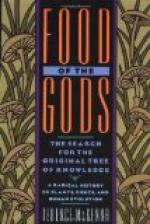It was compassion for the ill-housed work-people of Birmingham that led Mr. George Cadbury, the founder of the village, to undertake so splendid a task, and having accomplished it, he crowned it by making a gift of the whole to the nation, placing its administration in the hands of a Trust. In doing so he laid down ideal stipulations for its development, and for the regulation of the villages which may in the future be built out of the income of the Trust. The principal of these are that factories or workshops shall never occupy more than one fifteenth of the area; that no house shall occupy more than one-fourth of the ground allotted to it; that in addition to wide roads and the ample gardens thus secured, one-tenth of the area shall be reserved for public open spaces for ever, parts of which are to be used as children’s playgrounds. At present no intoxicants are sold or prepared on the estate, and if ever the trustees should see fit to permit this, it is to be as a co-operative undertaking, the profits of which shall “be devoted to securing for the village community recreation and counter-attraction to the liquor trade as ordinarily conducted.”
Such a scheme affords a model for public bodies tackling the housing problem in earnest, and is fraught with great hopes for the future. The annual income, nearly L6,000, is to be applied first to the development of this estate, and subsequently to the purchase of estates near Birmingham or other large towns, and the establishment of new villages thereon. A most important feature is, that although the rents are calculated to yield a fair return on the cost, including a proportion of development expenses, they are so low that a five-roomed cottage with bath and every convenience can be had for the rent of a two-roomed hovel in the slums. About two-fifths of the householders find employment in the cocoa works, the rest in the adjoining villages or in Birmingham.
[Illustration—Black and White Plate: Almshouse Quadrangle, Bournville.]
The gardens are a special feature, and before the houses are let, they are laid out by the Trust, and planted with fruit trees. All are well worked, and an average yield in vegetables and fruit of nearly two shillings a week has been found possible, equivalent to something like L60 an acre—more than twelve times as much food as would be produced if under pasturage. Two professional gardeners, with several men under them, are employed to look after the gardening department, and they are always ready to give any information or advice required by the tenants, so that the cottage gardens may be cultivated to the utmost profit. At present the public buildings consist of a village inn and baths; a school is shortly to be erected. Building is being steadily proceeded with, and although the development of the estate may be somewhat slow at first, it will advance with growing rapidity as the revenue increases. No wonder that there is an omnipresent air of comfort and prosperity, or that the death-rate is only about eight per thousand, in comparison with nineteen in the neighbouring city.




